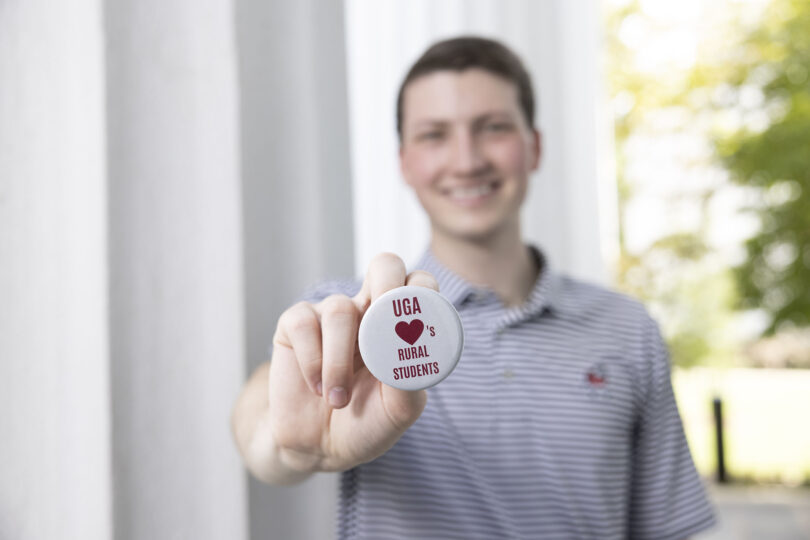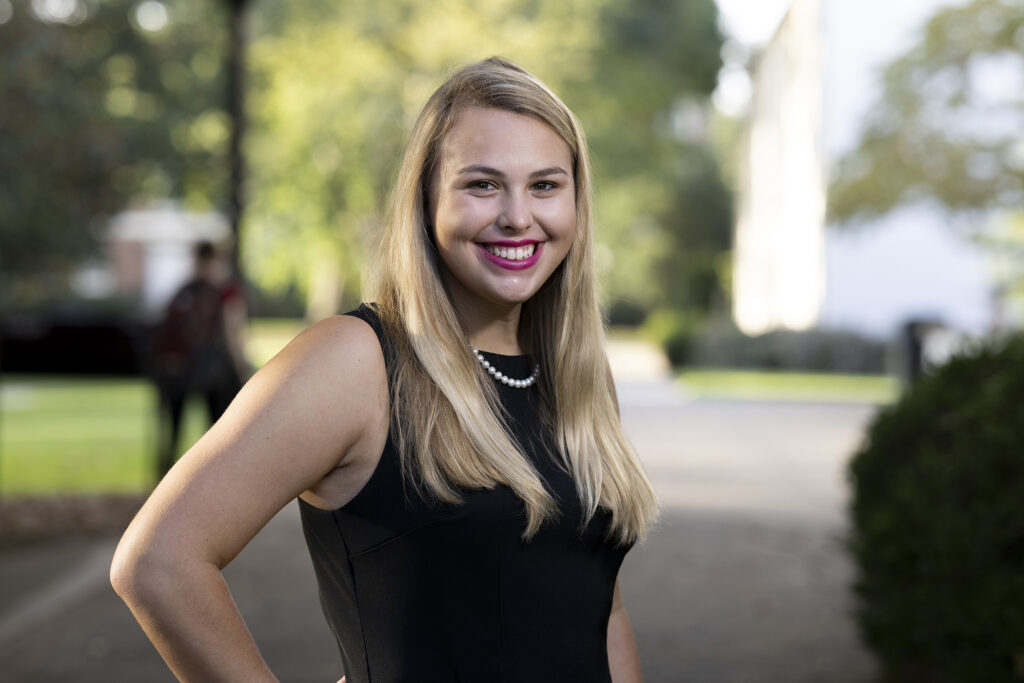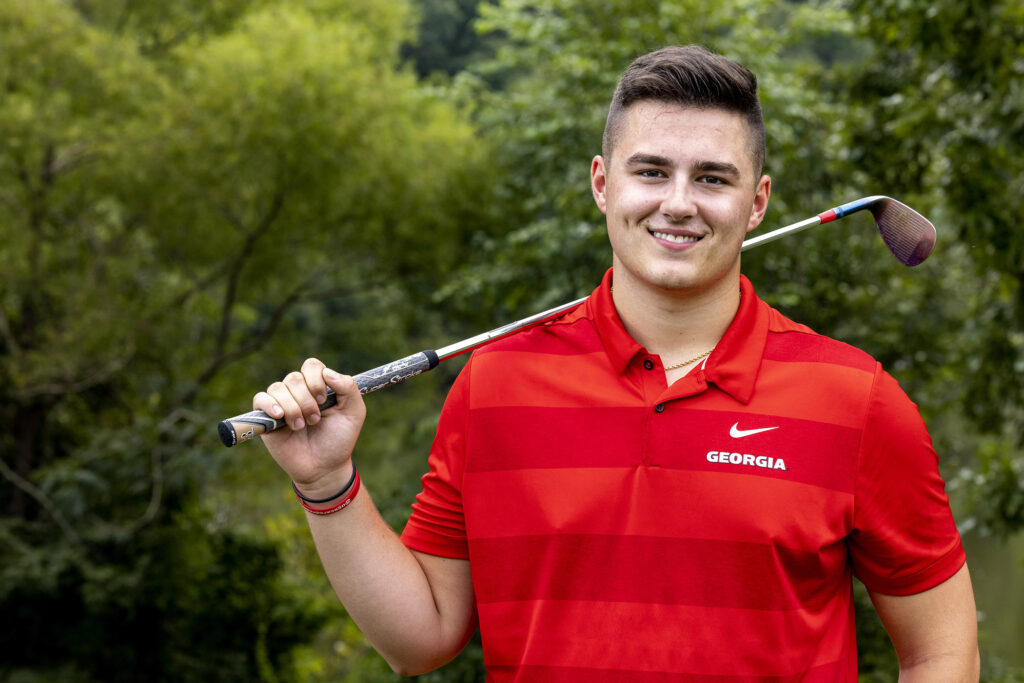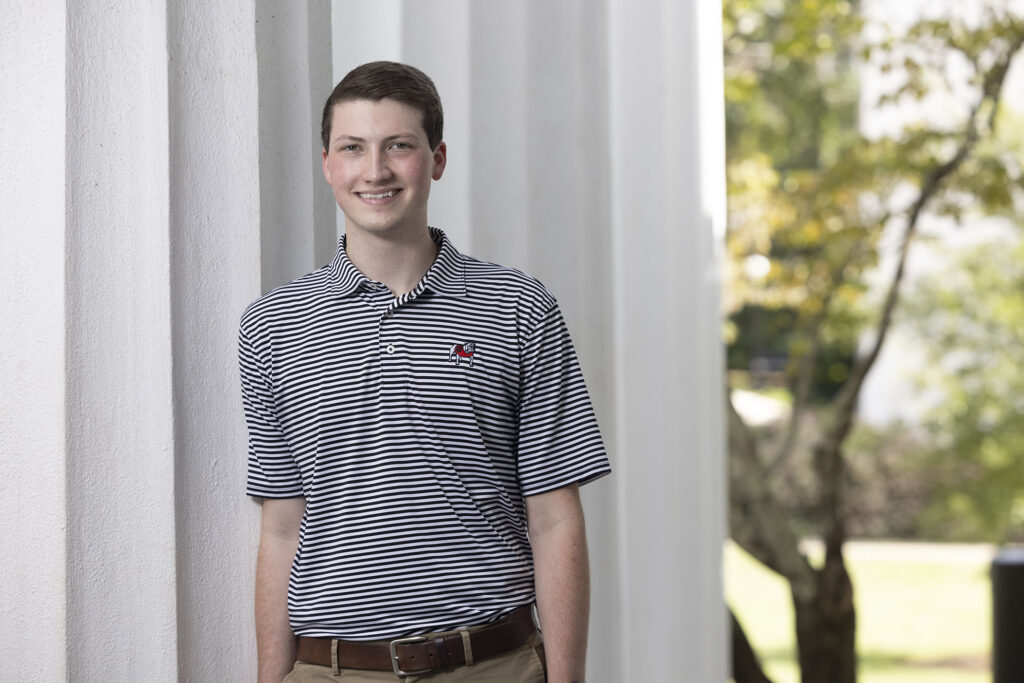For a student from a tiny rural town, coming to the University of Georgia can be a daunting experience. There’s a bus system to navigate, multiple dining halls to explore and a lot more people.
“When I came to UGA, there were classes with more than half my graduating class – which was only 130 people – all in one classroom” said Ciara Page from Ellabell, a town of about 8,500. Since that initial culture shock, UGA now feels like “a home away from home,” said Page, who is studying psychology, cognitive science and gerontology.
Part of that change is because of the ALL Georgia Program, an initiative housed within the Division of Academic Enhancement that provides resources for rural students attending UGA.
“The purpose of ALL Georgia is to welcome students and connect them to resources that will support their academic success. Ultimately, it’s about helping them find their community and equipping them to navigate UGA,” said program coordinator Graff Wilson.
ALL Georgia, which serves about 3,200 rural students, offers academic support and guidance via academic coaching, scholarships, student success workshops, connections to internships and Cooperative Extension opportunities.
But a huge part of it is cultivating a sense of belonging through study breaks, barbeques, hikes, and special activities such as the “Grow with ALL Georgia Program” where students were invited to stop by to meet each other, grab a snack and pot a small plant to keep in their residence hall rooms.
“ALL Georgia is proud to partner with Public Service and Outreach and Student Affairs and others to better serve rural students and connect them with a diverse array of resources and programming,” Wilson added.
“I like meeting kids from other rural parts of the state,” said Danny Reagan, a risk management and insurance student from Hiawassee, population just over 8,000. “We have a lot of things in common and it’s cool to talk about our small towns.” A common topic of conversation? “Things we don’t have in our town that we wish we did,” he laughed.
The program adjusts to what students need. “We really listen to our students to identify the challenges they face,” said Wilson. Some of the issues students have raised include lack of AP or advanced classes in their high schools and limited broadband access, which forced students to drive to a local McDonald’s to latch onto the WiFi during online learning. “You wouldn’t think about these things unless you’ve lived that experience,” said Wilson, who comes from a rural town in Kentucky himself.
The program also supports RISE, a student-led organization designed to provide tools and community to rural students. Bryson Henriott, a student and president of RISE, saw that there was a need for more college resources at small high schools. Last year, in partnership with the Office of Undergraduate Admissions and the ALL Georgia Program, RISE sent care packages to rural high schools with information on UGA, RISE and ALL Georgia.
ALL Georgia helps gives rural students the tools they need to thrive so they can capitalize on the strengths that come from growing up in a rural community. One of those strengths is making do with what there is. Page, for example, didn’t have science electives at her high school, so until she got to college, she relied on her own internet searches to find information on the subjects she wanted to study. “I think a lot of people underestimate rural students, academically and professionally,” said Page.
“I think rural students are extremely motivated,” said Henriott. “For a lot of rural students, there’s a high correlation with being a first-generation college student. I’m a first-generation college student and leaving such a small community or being the first in your family to go to college creates an extra driving force to do it, and do it well.”
Students from all backgrounds are encouraged to engage with the ALL Georgia Program and participate. “Whether you come from a town that has two stoplights or a place that’s a little more robust, your experience is important, and everybody benefits from learning about each other’s individual experiences,” said Wilson.
“We’re aiming for this domino effect of people creating a more inclusive and welcoming environment that benefits everybody,” said Wilson. “I think our students are at the forefront of that. We’re hoping people will go home to their communities and be inspired to offer that to other people too.”











